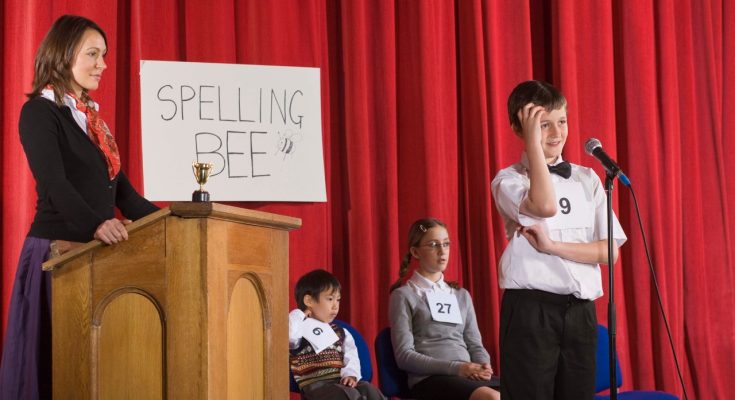In today’s digital age, where screens dominate our daily lives, traditional methods of learning spelling and grammar may seem outdated to some. However, there’s a timeless charm and effectiveness in using word games to enhance these foundational language skills. Whether played solo or with others, word games engage our minds in a playful yet purposeful manner, fostering a deeper understanding of language mechanics. Let’s delve into how these games benefit learners of all ages.
Why Are Word Games Effective?
Word games offer a unique blend of entertainment and education. They transform learning into a fun activity, making it easier for participants to stay engaged and motivated. Unlike conventional study methods that can feel monotonous, word games inject an element of challenge and reward. This gamified approach encourages repeated practice, essential for mastering spelling and grammar rules intuitively.
1. Enhanced Vocabulary Acquisition
One of the primary benefits of word games lies in their ability to expand vocabulary effortlessly. By encountering new words in various contexts, players learn not only their meanings but also their correct usage in sentences. This exposure contributes significantly to building a robust vocabulary—a cornerstone of proficient spelling and grammar skills.
2. Improved Spelling Accuracy
Consistent exposure to words through games helps reinforce spelling patterns and rules. Players often encounter common pitfalls and irregularities in a supportive environment, allowing them to practice spelling without fear of failure. Over time, this leads to increased spelling accuracy and confidence in written communication.
3. Better Grammar Understanding
Grammar rules can be complex and abstract, making them challenging to grasp through conventional methods alone. Word games, however, provide practical examples of grammar rules in action. From identifying parts of speech to constructing grammatically correct sentences, players develop a deeper understanding of language structure through interactive play.
Types of Word Games and Their Benefits
Scrabble: The Classic Word Mastery Game
Scrabble remains a beloved choice for language enthusiasts worldwide. By forming words from letter tiles, players sharpen their spelling skills while strategically placing tiles to maximize points. The game encourages creativity in word formation and challenges players to think critically about vocabulary usage—a valuable exercise for refining spelling and grammar.
Crossword Puzzles: Cracking Language Codes
Crossword puzzles offer a mental workout that combines vocabulary knowledge with deductive reasoning. Solving clues requires players to recall words based on their definitions or context within a grid, promoting active engagement with language nuances. Regular crossword practice improves word recognition and reinforces spelling through repetitive exposure.
Word Searches: Finding Language Gems
Word searches provide a visual and tactile approach to language exploration. By locating hidden words within a grid of letters, players reinforce spelling patterns and enhance visual scanning abilities. The activity fosters a sense of accomplishment as players uncover words and reinforces spelling patterns through interactive play.
The Psychological Impact of Word Games
Beyond their educational benefits, word games offer psychological rewards that enhance learning retention and motivation. The sense of achievement derived from solving puzzles or mastering challenging words boosts self-confidence—a crucial factor in sustaining interest and perseverance in language improvement efforts.
Cognitive Flexibility and Problem-Solving Skills
Engaging with word games cultivates cognitive flexibility—a cognitive ability essential for adapting to new information and changing circumstances. Players must navigate linguistic challenges, apply rules creatively, and experiment with different strategies to succeed. This mental agility extends beyond language skills, benefiting overall problem-solving abilities.
Social Interaction and Communication Skills
Many word games are designed for group play, fostering social interaction and communication skills. Collaborative games like “Taboo” or “Bananagrams” encourage players to articulate ideas clearly, negotiate rules, and cooperate towards a common goal. Such interactions promote effective communication—a vital skill in both personal and professional settings.
Integrating Word Games into Learning Environments
Educators and parents recognize the value of integrating word games into formal education and home learning routines. By incorporating games strategically, instructors can reinforce curriculum objectives while making learning enjoyable and accessible. Word games serve as valuable teaching tools across diverse educational contexts:
Classroom Applications: Reinforcing Curriculum Objectives
In classrooms, teachers leverage word games to reinforce spelling lists, vocabulary units, and grammar concepts. Games align with lesson plans, offering students an interactive platform to apply classroom learning independently or in small groups. This approach enhances retention and comprehension while catering to diverse learning styles.
Home Learning: Family Bonding and Skill Development
At home, word games promote family bonding while supporting children’s language development. Whether played during leisure time or integrated into study sessions, games create opportunities for shared learning experiences. Parents can use games to supplement schoolwork, reinforce spelling strategies, and nurture a love for language learning from an early age.
Read More: The Psychology of Crossword Puzzles: Why Do We Love to Solve Them?
Conclusion
Word games transcend their role as mere entertainment—they are powerful tools for enhancing spelling and grammar skills across all age groups. By combining playfulness with educational objectives, these games inspire curiosity, foster language proficiency, and promote lifelong learning habits. Whether you’re honing your vocabulary, mastering spelling rules, or exploring grammar nuances, word games offer a dynamic pathway to linguistic excellence. Embrace the joy of learning through play and unlock the full potential of your language skills with every word game session.




